×
Filter Results
Filter Results
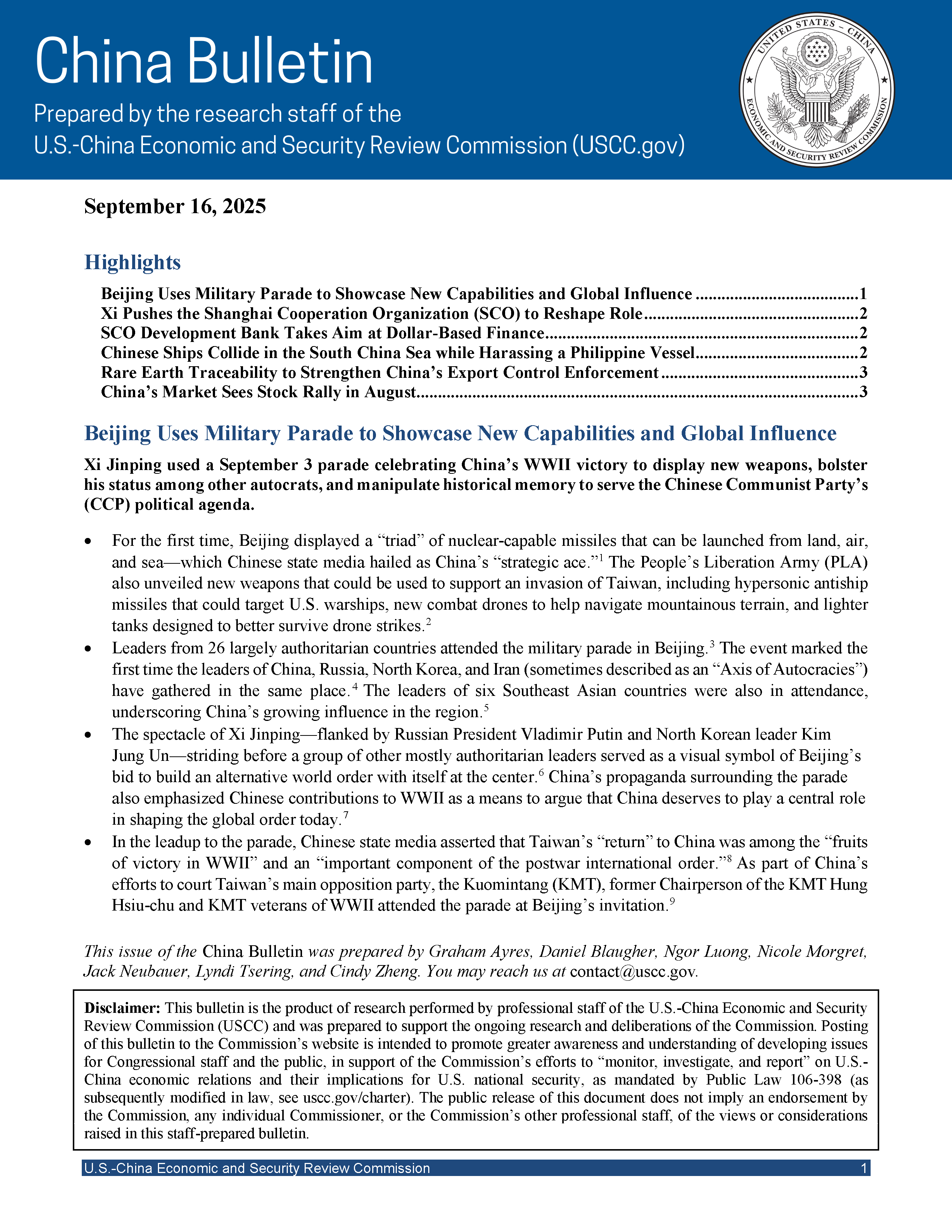
China Bulletin
Highlights include: Beijing Uses Military Parade to Showcase New Capabilities and Global Influence; Xi Pushes the Shanghai Cooperation Organization (SCO) to Reshape Role;
SCO Development Bank Takes Aim at Dollar-Based Finance; Chinese Ships Collide in the South China Sea while Harassing a Philippine Vessel; Rare Earth Traceability to Strengthen China’s Export Control Enforcement; China’s Market Sees Stock Rally in August

China Bulletin
Huawei to Store Spain’s Wiretap Data, Raising Security Concerns
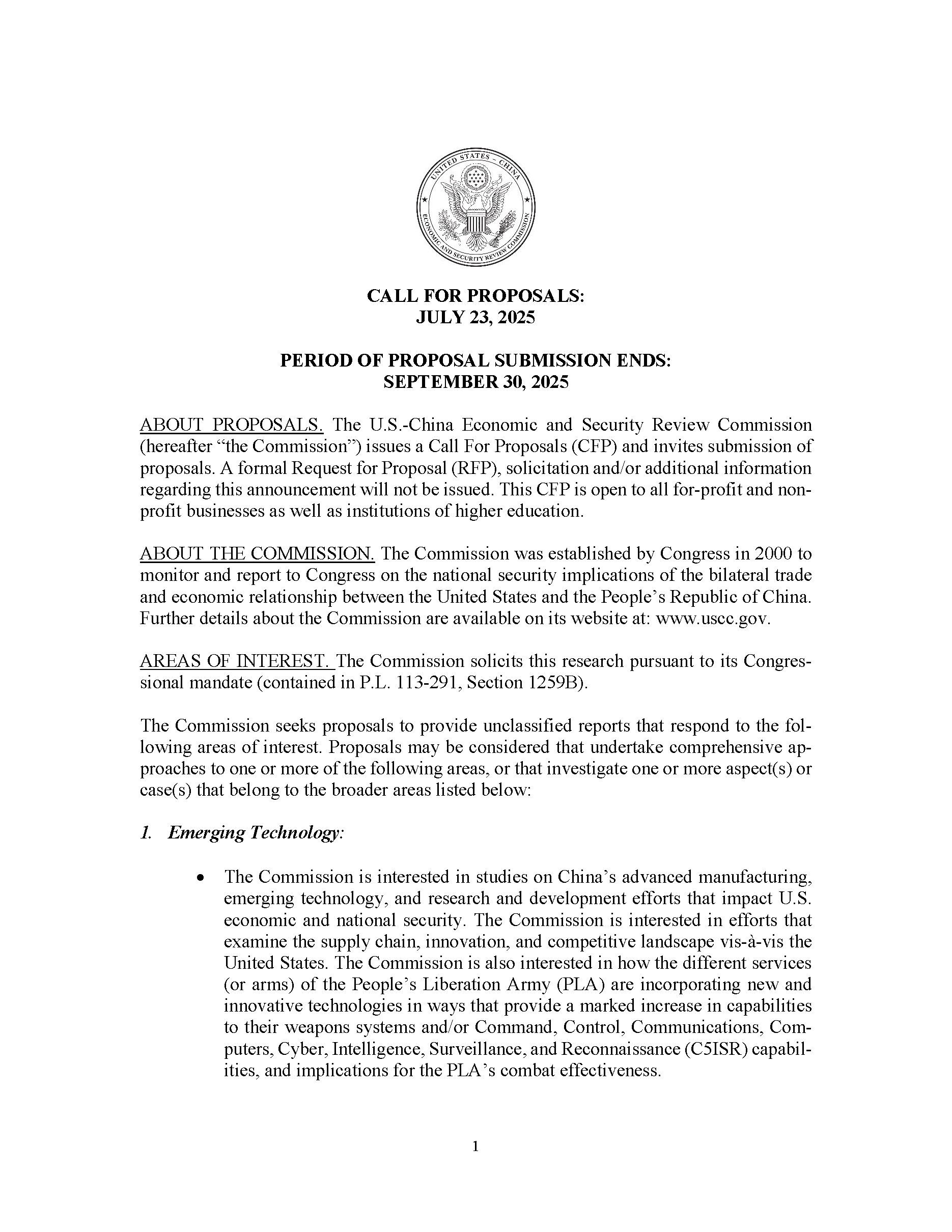
Research Proposals
The Commission invites submission of proposals to provide concise unclassified reports in emerging technology, supply chain vulnerability, China’s gray zone activities, and other novel ideas.

Commission Spotlight
This Commission Spotlight examines how China-linked scam centers are fueling corruption and violence in Southeast Asia, paving the way for greater Chinese influence in the region, and directly harming Americans in the process.
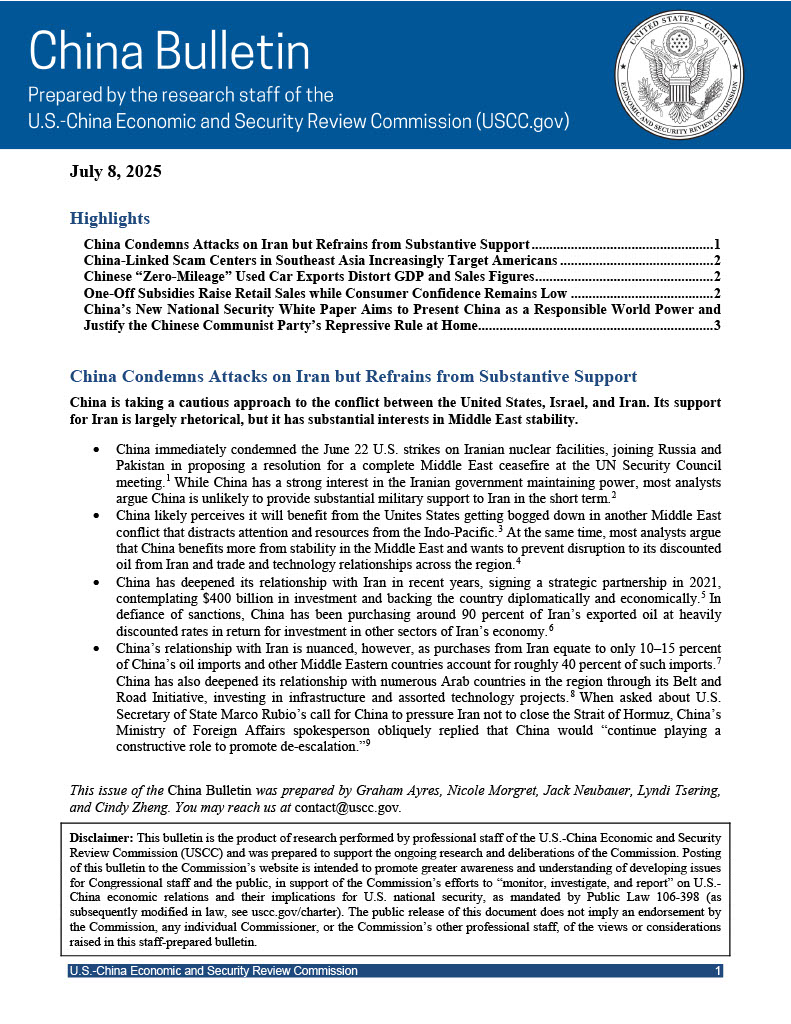
China Bulletin
China-Linked Scam Centers in Southeast Asia Increasingly Target Americans
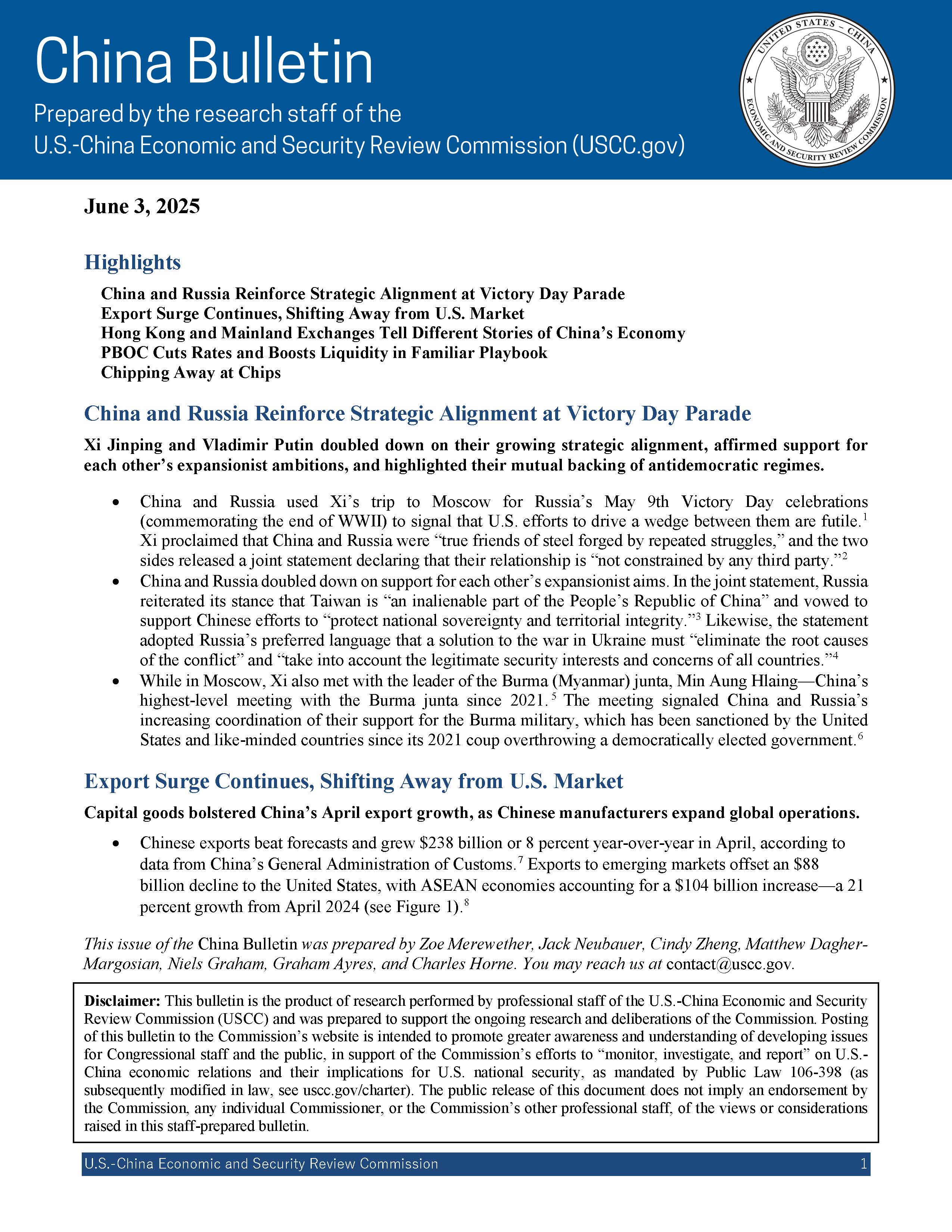
China Bulletin
China and Russia Reinforce Strategic Alignment at Victory Day Parade

Research
This publication identifies Chinese nationals serving in leadership positions in key international organizations (see full list below). Top leadership positions are broadly defined as positions at the board of directors and senior management team level.
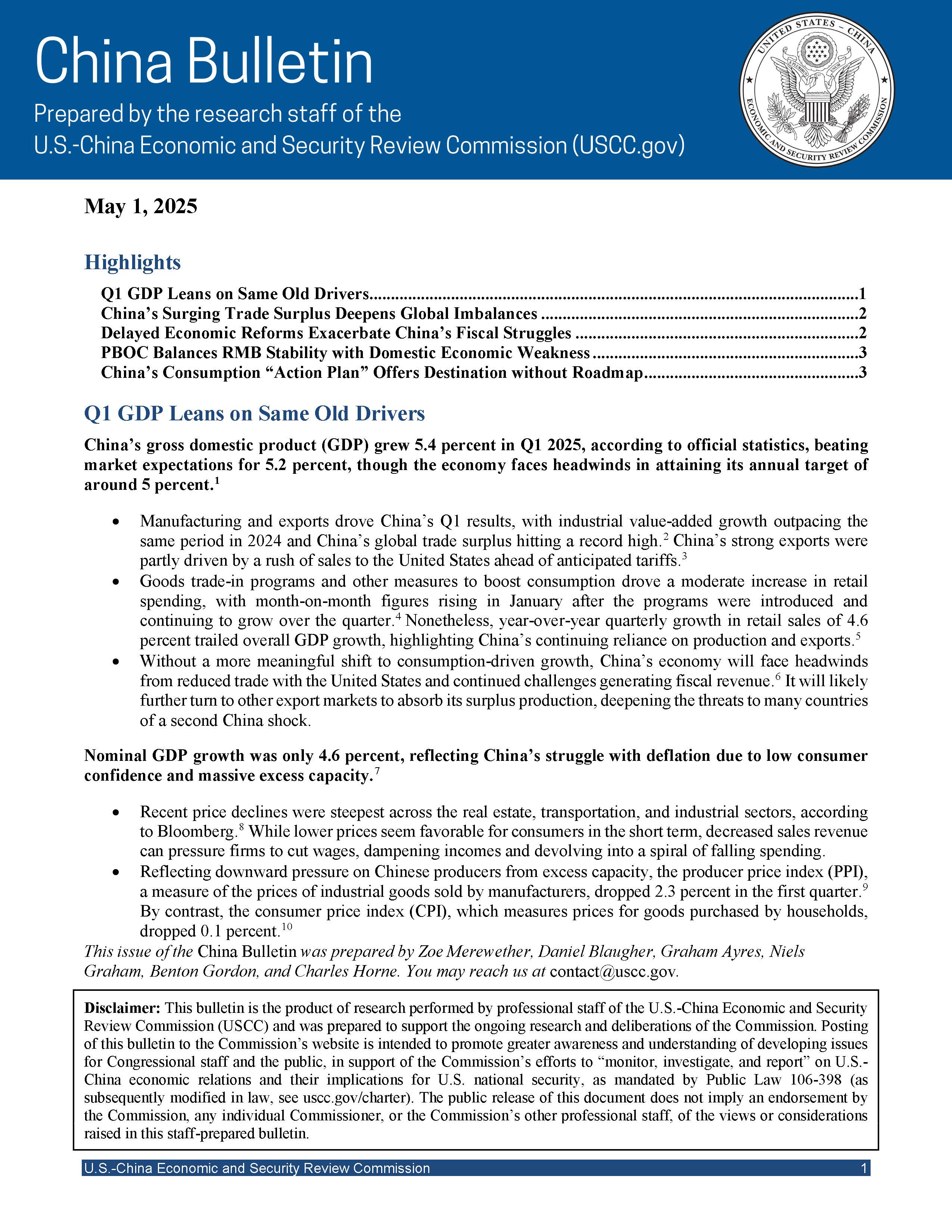
China Bulletin
China’s Consumption “Action Plan” Offers Destination without Roadmap
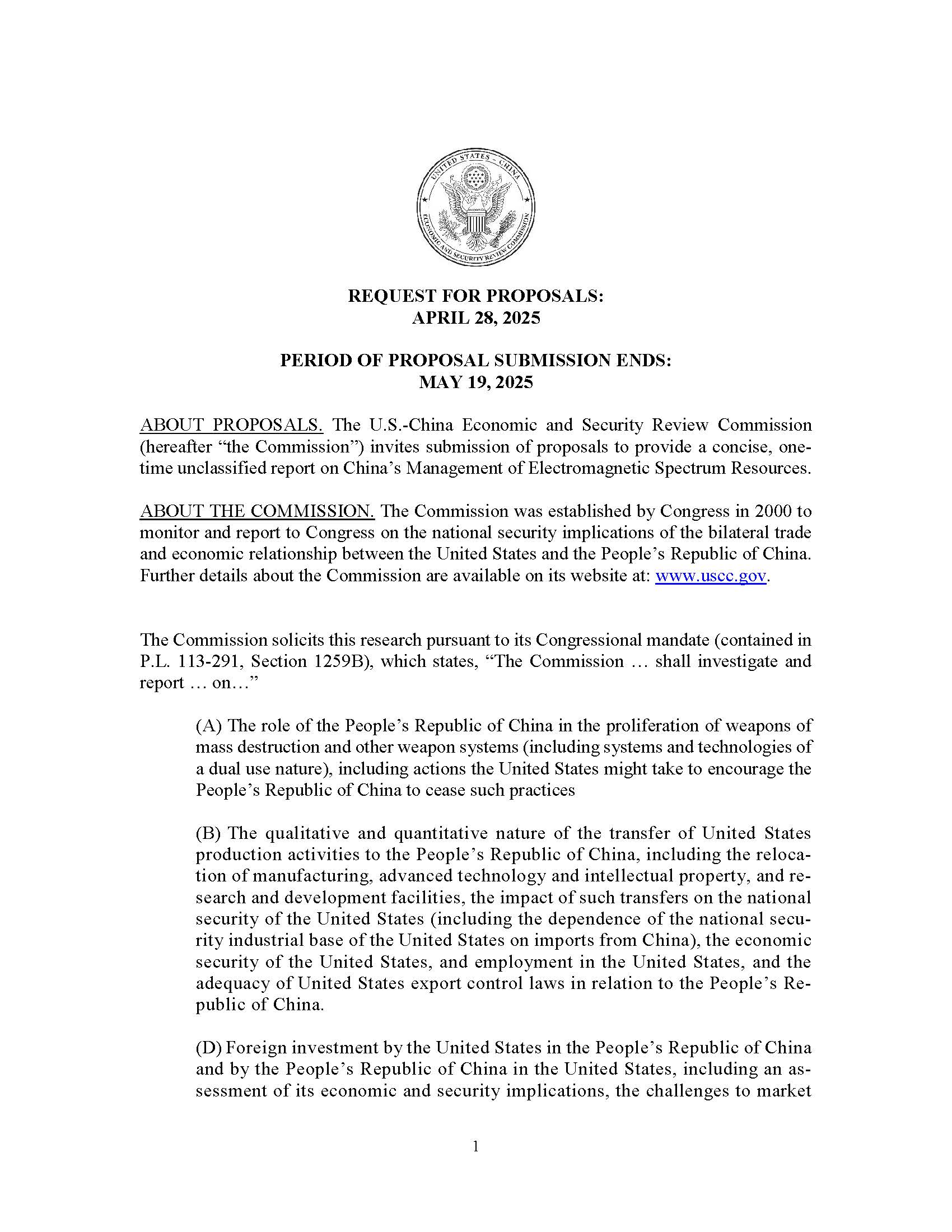
Research Proposals
The Commission invites submission of proposals to provide a concise, one-time unclassified report on China’s management of electromagnetic spectrum resources.
